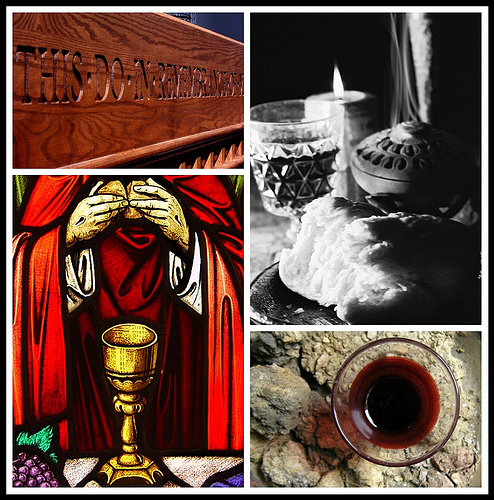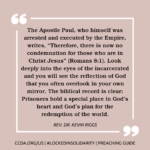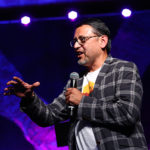In 2017 Protestants mark the 500th anniversary of the Reformation that Martin Luther launched and that John Calvin did so much to advance. It is an auspicious time to reflect on the state of world wide Church.
It was our mother, the Roman Catholic Church, that The Reformation forbears protested so vigorously against. It took 450 years for the Roman Church to consider us “separated brethren.” As progressive as Vatican II was, they still could not bring themselves to consider Protestants as members of the true “Church.” But we have come a long way in the last few decades. John Paul II was perhaps the first pope to have wide appeal to Christians of every tradition. Today, most Protestants and Catholics consider the other to be Christian. That is a major paradigm shift that is even more evident on the ground than in cloistered meetings of high church officialdom. In this new era the logic of remaining separate church bodies seems to collapse on itself.
The apostle Paul makes this plea to the church:
We were not called only to be saved, but to be one. We have been called as Christians to maintain the unity of the Spirit in the bond of peace. Unity is the fruit of our faith in Christ. Jesus himself made this prayer concerning unity: “I ask not only on behalf of these, but also on behalf of those who will believe in me through their word, that they may all be one. As you, Father, are in me and I am in you, may they also be in us, so that the world may believe that you have sent me” (John 17:20-21).
Jesus does not pray for our unity simply for unity sake, but so that the world may believe! Calvin and Knox bequeathed to us a formula that says that when you have right preaching, right administration of sacraments and right discipline, there you have the true church. But more than a thousand years before that, the Council of Nicea defined the marks of the true church as one, holy, catholic and apostolic. Can the Catholic, Orthodox, Protestant and Pentecostal bodies claim all four of these marks? In that sense, no church is truly church; we have all failed to lead a life worthy of our calling to maintain the unity of Christ’s body.
 Even though every denomination considers itself theologically “orthodox,” my contention is that we are all ecclesiastically heterodox – all of Christendom today suffers from the Donatist heresy, considering other Christians outside the bounds of the true church. If visible unity remains our calling, and if Jesus’ prayer that we be one still stands, then we cannot move in the direction of schism, no matter how intolerable our theological opponents seem. Christians have often organized their theology and divisions around various “popes.” The Roman pontiff is not the only such pope. We Protestants also have our popes, papas, fathers – Martin Luther, John Calvin, John Wesley – except that they serve in perpetuity. Jesus taught, “Whoever comes to me and does not hate father and mother, wife and children, brothers and sisters, yes, even life itself, cannot be my disciple” (Luke 14:26). Do we not need to relinquish the sole claim that we grant to Calvin over our life together as a church, if that claim excludes the great cloud of witnesses to whom the church owes its true identity? There are an estimated 38,000 denominations around the world, not in communion with one another (except in rare cases).
Even though every denomination considers itself theologically “orthodox,” my contention is that we are all ecclesiastically heterodox – all of Christendom today suffers from the Donatist heresy, considering other Christians outside the bounds of the true church. If visible unity remains our calling, and if Jesus’ prayer that we be one still stands, then we cannot move in the direction of schism, no matter how intolerable our theological opponents seem. Christians have often organized their theology and divisions around various “popes.” The Roman pontiff is not the only such pope. We Protestants also have our popes, papas, fathers – Martin Luther, John Calvin, John Wesley – except that they serve in perpetuity. Jesus taught, “Whoever comes to me and does not hate father and mother, wife and children, brothers and sisters, yes, even life itself, cannot be my disciple” (Luke 14:26). Do we not need to relinquish the sole claim that we grant to Calvin over our life together as a church, if that claim excludes the great cloud of witnesses to whom the church owes its true identity? There are an estimated 38,000 denominations around the world, not in communion with one another (except in rare cases).
The “conservatives” claim that if only we returned to a more rigorous orthodoxy, the pews will be filled again. The “liberals” contend that if only the church flung open its doors to gay folk, the church would grow again. Why can’t we just admit the truth that we no longer know how to be church in a world that has changed from under our feet? We are bewildered, and angry that we cannot figure this out on our own. But the world has become too complex for us to go it alone. We simply do not have the resources internally to be renewed without active engagement with Christians from other denominations, other nations, and yes, even the Roman Catholic Church.
This is the central insight of being part of a multicultural church: mutual affirmation of one another’s culture as God’s good gift, and simultaneously, mutual correction of idolatries rooted in every culture, speaking the truth in love. How do we do this among the various ecclesial bodies, cultures, languages and ideologies?
Does it really matter in the end whether we follow Paul, Apollos or Cephas, the Pharisees, Sadducees or the Zealots? Do we to our shame remain captive to our ancient tribalism?
The ministry of reconciliation will be the most urgent ministry in the 21st century. Our divisions, arrogance and hateful passions will be broadcast instantly in today’s globalized world. Our fractured witness will be more a stumbling block to evangelism than ever before. Our brokenness will dilute our efforts at peace and justice. Let us now confess our wretchedness together instead of pointing fingers at one another. Perhaps God will have pity on us and show compassion on us. To paraphrase Paul: Wretched church that we are! Who will rescue us from this body of death? Thanks be to God through Jesus Christ our Lord!
Is it possible that something new might emerge out of the decline of the American Church as a whole? This is a dangerous question to ask, where we already have such a fetish for novelty. For those who see that we can’t work out our differences in the church, then the only option seems to be to break with the past, with tradition, with the family, and start over again—and again. The result is a barren, uprooted church.
The Lutheran pastor/theologian Dietrich Bonhoeffer, in his Letters and Papers from Prison, famously spoke of a “world come of age.” Sitting in a cell as a Nazi resister in the midst of World War II, he pushed for brutal honesty: the assumed foundations of the Christian faith had failed and now lay in ruins. He explored the “this worldliness” of the Christian faith by seeking to live into the implications of God’s becoming human in Jesus Christ—responsibility with and for others, bearing the burdens of others, and risking sin and guilt on behalf of others. He did not flee the guilt of the German Lutheran church or the nation as a whole, but claimed it as his own, confessed it corporately, and took responsibility for it in his words and actions. He called us to embrace our creatureliness, and named our longing for divine reincarnation in the form of a feckless perfectionism as idolatry rooted in Platonic dualism.
The reason Bonhoeffer remains such a compelling witness for the church today is because his theological reflection was so rooted in the risks he took as a disciple. Much like Jesus, Bonhoeffer’s life was parabolic. His final words, as he was stripped naked and led to his execution, were: “This is the end. For me, the beginning of life.” Commitment, sacrifice, responsibility, risk, and suffering alongside others, even to the point of death—these are the marks of the church in a world “come of age.” His hermeneutic was neither one of blind faith nor of permanent suspicion, but a hermeneutic of trust. To be a Christian witness is to risk loving, to experience betrayal in the midst of this love, and then to continue loving through the betrayal. Out of death, new life; in the end, the beginning—this is the Christian message of reconciliation.
Jesus’ ethic was simple: “By their fruits ye shall know them” (Mt. 7:16). Has the American church been proclaiming the Good News of reconciliation with our lips, but failing to embody it in our institutional and congregational life together?
It is here that the local church must play an important role in the reconstruction of our Christian life together around the globe. Just as Bonhoeffer’s life was a living parable, we need local congregations that will serve as a parabolic witness to new life and reconciliation. Unlike the dominant mythology of the United States, however, the new does not emerge ex nihilo, but is always deeply rooted in, and contends with, the old. What we need, in other words, is a New Church Rising from the ground, out of the ruins of the breakdown of community in the West and the guilt we all share for global sources of oppression. As the American church declines can we discern these rumblings of new life from the ground up?
For more From Jin Kim visit http://newchurchrising.org/





